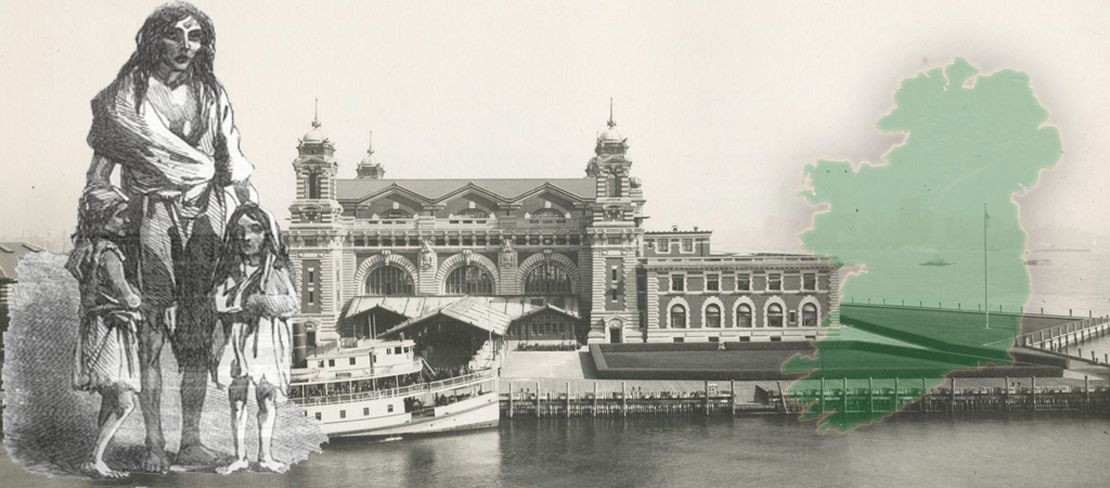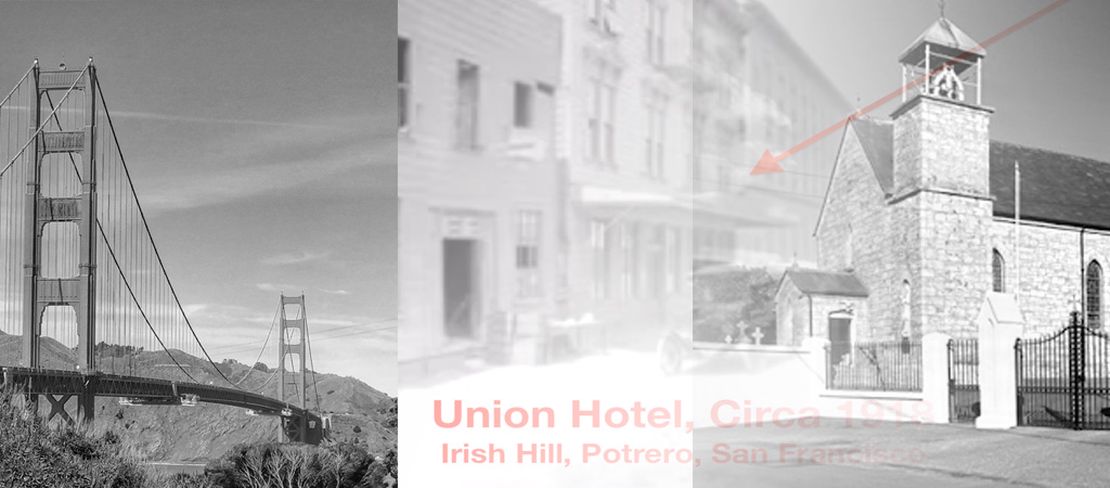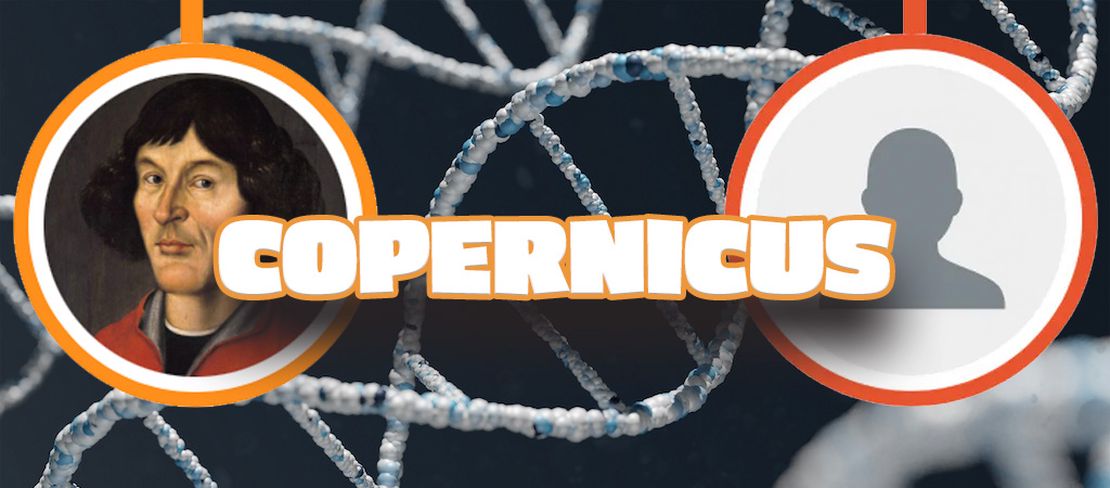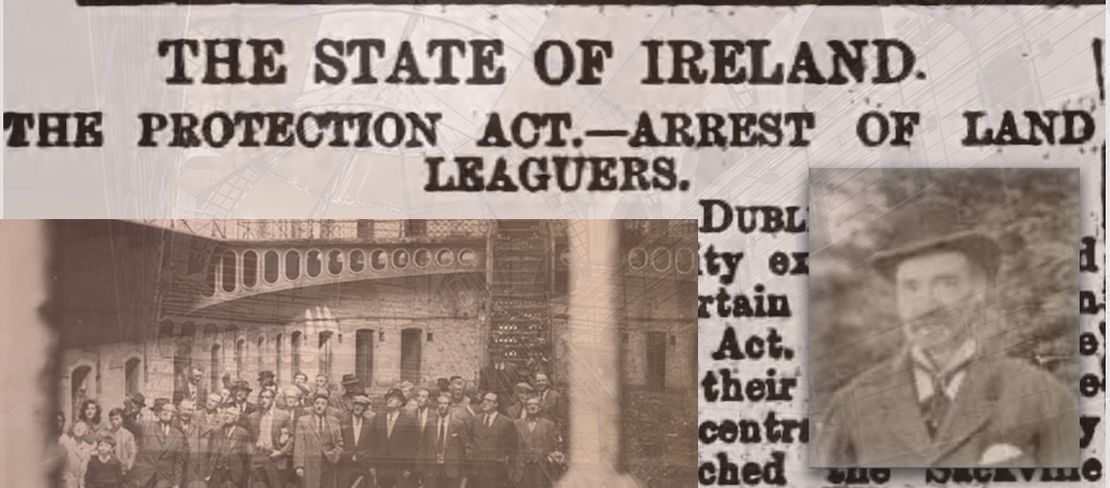
Patrick McManus Arrest
- Kevin McManus
- Ireland
- August 12, 2024
Table of Contents
The Protection of Persons and Property (Ireland) Act 1881 allowed for internment without trial of those suspected of involvement in the Land War in Ireland.
A total of 953 people were detained under the act.
Many of them were active in the Irish National Land League; this was sufficient for the “reasonable suspicion” required by the act.
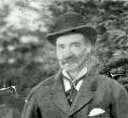
Patrick McManus, was known as Paddy Mac, born in 1846 in Keadue, County Roscommon, six miles from our current family home in Drumshanbo, County Leitrim was arrested under the Coercion Act.
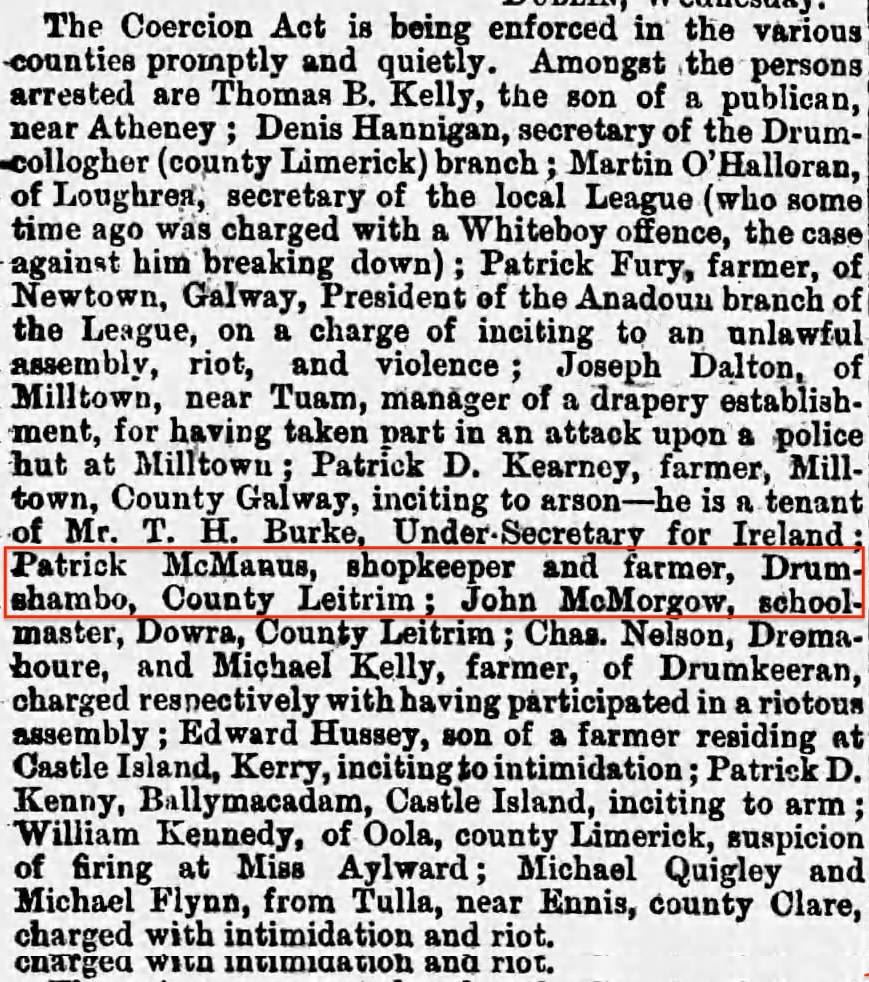
A Coercion Act was an Act of Parliament that gave a legal basis for increased state powers to suppress popular discontent and disorder. The label was applied, especially in Ireland, to acts passed from the 18th to the early 20th century by the Irish, British, and Northern Irish parliaments.
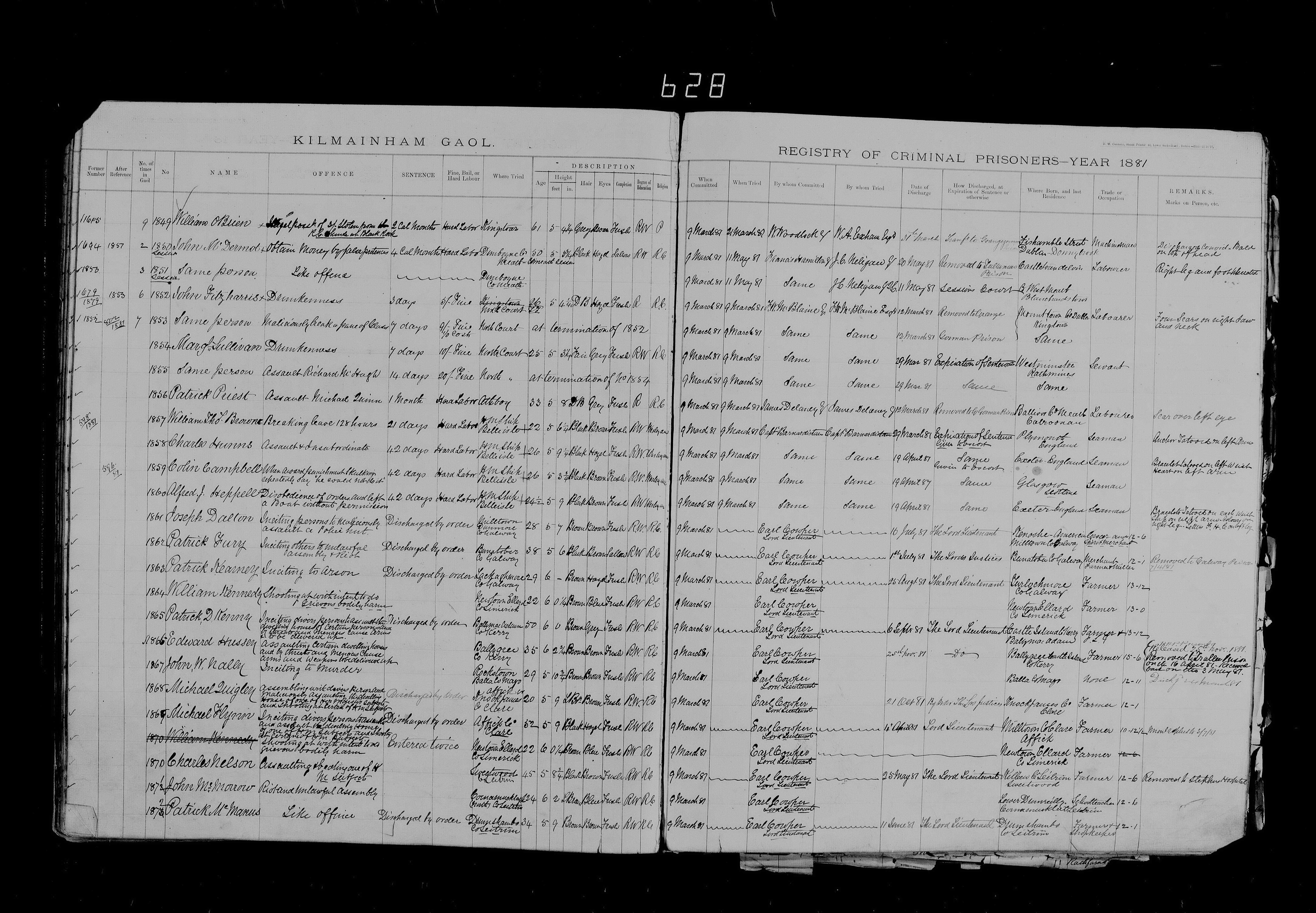
As a response to the Plan of Campaign of the mid-1880s the new Chief Secretary for Ireland Arthur Balfour secured the Criminal Law and Procedure (Ireland) Act 1887 or “Perpetual Crimes Act”, a Coercion Act aimed at the prevention of boycotting, intimidation, unlawful assembly and the organisation of conspiracies against the payment of agreed rents. The Act resulted in the imprisonment of hundreds of people including over twenty MPs. The act was condemned by the Catholic hierarchy since it was to become a permanent part of the law and did not have to be renewed annually by parliament, but Pope Leo XIII issued the bull Saepe Nos in 1888 which was uncritical of the Acts. Trial by jury was abolished. An influential analysis of the pros and cons of the Act was published in 1888 by William Henry Hurlbert, a Catholic Irish-American author.
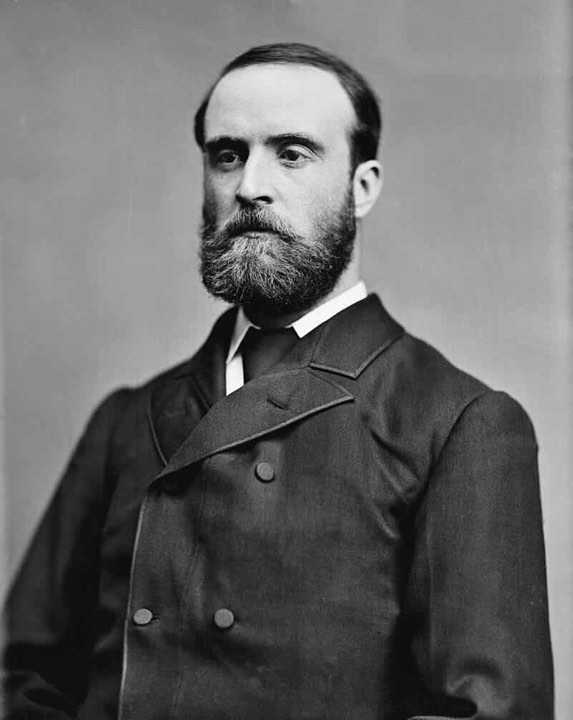
On 13 October 1881, IPP leader Charles Stewart Parnell was arrested under the act after his newspaper, the United Ireland, had attacked the Land Law (Ireland) Act 1881
Hundreds Arrested
Many hundreds were imprisoned at times under the Acts, including many prominent politicians and agrarian agitators:
Joseph Biggar
Joseph Gillis Biggar (c. 1828 – 19 February 1890), commonly known as Joe Biggar or J. G. Biggar, was an Irish nationalist politician from Belfast. He served as an MP in the House of Commons of the United Kingdom of Great Britain and Ireland as member of the Home Rule League and later Irish Parliamentary Party for Cavan from 1874 to 1885 and West Cavan from 1885 to his death in 1890.
Alexander Blane
Alexander Blane (c. 1850–7 February 1917) was an Irish nationalist politician and Member of Parliament (MP) for South Armagh, 1885–92. He was a supporter of Charles Stewart Parnell during the Split in the Irish Parliamentary Party, and later a pioneering Socialist. In 1876 he was appointed agent to the Catholic Registration Association, an organization dedicated to maximizing the Catholic vote. He was also president of the Prisoners’ Aid Society.
Michael Davitt
Michael Davitt (25 March 1846 – 30 May 1906) was an Irish republican activist for a variety of causes, especially Home Rule and land reform. Following an eviction when he was four years old, Davitt’s family migrated to England. He began his career as an organiser of the Irish Republican Brotherhood, which resisted British rule in Ireland with violence. Convicted of treason felony for arms trafficking in 1870, he served seven years in prison. Upon his release, Davitt pioneered the New Departure strategy of cooperation between the physical force and constitutional wings of Irish nationalism on the issue of land reform. With Charles Stewart Parnell, he co-founded the Irish National Land League in 1879, in which capacity he enjoyed the peak of his influence before being jailed again in 1881.
John Dillon
John Dillon (4 September 1851 – 4 August 1927) was an Irish politician from Dublin, who served as a Member of Parliament (MP) for over 35 years and was the last leader of the Irish Parliamentary Party. By political disposition, Dillon was an advocate of Irish nationalism, originally a follower of Charles Stewart Parnell, supporting land reform and Irish Home Rule.
James Gilhooly
James Gilhooly (1847–1916) was an Irish nationalist politician and MP. in the House of Commons of the United Kingdom of Great Britain and Ireland as member of the Irish Parliamentary Party, from 1910 the All-for Ireland Party, who represented his constituency (West Cork) from 1885 for 30 years until his death, retaining his seat in eight elections (four of them contested).
Patrick Guiney
Patrick Guiney (16 March 1867 – 12 Oct 1913) was an Irish Nationalist politician, agrarian agitator and Member of Parliament (MP) in the House of Commons of the United Kingdom of Great Britain and Ireland. Born in Newmarket, County Cork, he was the eldest son of Timothy Guiney, a shopkeeper and later clerk of Kanturk poor law union, and Ellen Carver.[1] He was educated at St. Patrick’s Monastery, Mountrath, County Laois.[2] He served three terms of imprisonment for activity in the Land War and later Plan of Campaign movement during the 1880s under the Coercion Act. He became a farmer and served as councillor for Newmarket and on Cork County Council (1908–1911) [2] as well as Chair of Newmarket Agricultural Society, Newmarket Gaelic League and Newmarket Old-Age Pensions Committee.
Matthew Harris
Matthew Harris (baptised 11 July 1826 – 13 April 1890), best known as Mat Harris, was an Irish Fenian, Land Leaguer, nationalist politician and Member of Parliament (MP) in the House of Commons of the United Kingdom of Great Britain and Ireland, for the Irish Parliamentary Party. He represented Galway East from 1885 until his death in 1890.
John Hayden
John Patrick Hayden (25 April 1863 – 3 July 1954) was an Irish nationalist politician. As a member of the Irish Parliamentary Party, he served in the House of Commons of the United Kingdom of Great Britain and Ireland from 1897 to 1918 as Member of Parliament (MP) for South Roscommon. He was also editor and proprietor of the Westmeath Examiner, published in Mullingar, County Westmeath, and a member of the Irish Board of Agriculture. He was imprisoned four times by the British administration under different Coercion Acts.
John Hooper
John Hooper (1846 – 23 November 1897) was an Irish nationalist journalist, politician and MP in the House of Commons of the United Kingdom, and as member of the Irish Parliamentary Party represented South-East Cork from 1885 to 1889. He began his career on the Cork Herald, and later joined the staff of the Freeman’s Journal, serving as its Parliamentary correspondent for a considerable time. He entered parliament in 1885 under the auspices of Charles Stewart Parnell. He was a member of Cork City Council from 1883 to 1890.
In December 1887, he was imprisoned in Tullamore prison, along with Timothy Daniel Sullivan for publishing reports of suppressed branches of the Irish National League. He remained in parliament until he retired from politics in 1889.s At the time of his death he was editor of Dublin’s Evening Telegraph.
J. E. Kenny
Joseph Edward Kenny (1845 – 9 April 1900) was an Irish physician, Coroner of the City of Dublin, nationalist politician and Member of Parliament (MP). In the House of Commons of the United Kingdom of Great Britain and Ireland, he was an Irish Parliamentary Party MP for South Cork from 1885 to 1892, and then a Parnellite MP for Dublin College Green from 1892 until his resignation in 1896.
Andrew Kettle
Andrew Joseph Kettle (1833–1916) was a leading Irish nationalist politician, progressive farmer, agrarian agitator and founding member of the Irish Land League, known as ’the right-hand man’ of Charles Stewart Parnell. He was also a much admired old friend of the nationalist politician, Frank Hugh O’Donnell, and the poet and novelist Katharine Tynan.
Denis Kilbride
Denis Kilbride (September 1848 – 24 October 1924) was an Irish nationalist politician, who as member of the Irish Parliamentary Party represented South Kerry (1887–1895), and North Galway (1895–1900) and South Kildare (1903–1918) as a Member of Parliament (MP) in the House of Commons of the United Kingdom of Great Britain and Ireland.
Pat O’Brien
Patrick O’Brien (c.1847 – 12 July 1917) was Irish Nationalist MP in the House Of Commons of the United Kingdom of Great Britain and Ireland and as member of the Irish Parliamentary Party represented North Monaghan (1886–1892) and Kilkenny City (1895–1917). He was Chief Whip of the Irish Party from 1907 until his death in 1917.
William O’Brien
William O’Brien (2 October 1852 – 25 February 1928) was an Irish nationalist, journalist, agrarian agitator, social revolutionary, politician, party leader, newspaper publisher, author and Member of Parliament (MP) in the House of Commons of the United Kingdom of Great Britain and Ireland. He was particularly associated with the campaigns for land reform in Ireland during the late 19th and early 20th centuries as well as his conciliatory approach to attaining Irish Home Rule
James O’Kelly
James Joseph O’Kelly (1845 – 22 December 1916) was an Irish nationalist journalist, politician and member of the House of Commons of the United Kingdom of Great Britain and Ireland and as member of the Irish Parliamentary Party represented the Roscommon constituency between 1880 and 1916.
Charles Stewart Parnell

Douglas Pyne
Jasper Douglas Pyne (1847 – 14 November 1888) was an Irish nationalist politician from County Waterford who served as a Member of Parliament (MP) from 1885 until his unexplained death. Pyne was the fourth child of the Reverend William Masters Pyne and his wife Marian. Rev W. M. Pyne came from Ballyvolane near Cork but he was the Rector of St Mary’s Church in Oxted, Surrey, from 1828 to 1869, a remarkable tenure of 41 years. The Pyne family lived in the Rectory (now called Oxted Place) until the Rev W. M. Pyne inherited Ballyvolane House on his father’s death.
Willie Redmond
William Hoey Kearney Redmond (13 April 1861 – 7 June 1917) was an Irish nationalist politician who served as a Member of Parliament (MP). He was also a lawyer and soldier who was killed in action in World War I.
Timothy Sullivan
Timothy Daniel Sullivan (29 May 1827 – 31 March 1914) was an Irish nationalist, journalist, politician and poet who wrote the Irish national hymn “God Save Ireland”, in 1867. He served as Lord Mayor of Dublin from 1886 to 1888 and a Member of Parliament (MP) from 1880 to 1900.
